
A Program of the Franklin Initiative
Fixing Congress
About
Fixing Congress aims to shine a bright light on Congress’s inability to resolve the major challenges facing the country and advocate for changes to rules, norms, processes, and expectations that will return power to Members and committees and make it possible for bipartisan majorities to emerge.
Fixing Congress was launched in the spring of 2024 in collaboration with former Senator Byron Dorgan of North Dakota and former Congressmen Jim Cooper of Tennessee and Charlie Dent of Pennsylvania. The trio invited a dozen former colleagues from the House and Senate to a daylong conference at Penn Washington, broadcast by C-SPAN, that focused on the causes of Congress’s dysfunction and practical steps that could be taken to fix it. Following the conference, the participants continued their discussions informally, eventually coalescing around a bold “Agenda for Fixing Congress” (see below). That agenda was shared with all Members and candidates running in the 2024 election. Now, in collaboration with other reform groups, Fixing Congress is talking with Members of both parties in both chambers about taking up the issue in the 119th Congress.
Meet the Director
Steven Pearlstein Senior Fellow
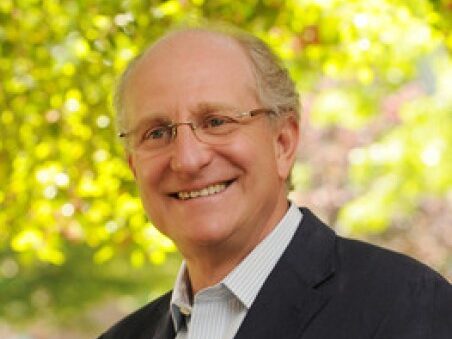
The Conveners
The Fixing Congress initiative was launched by former Members of both houses and both parties who have a deep understanding of why Congress is broken and practical and realistic recommendations for fixing it. Meet the three original conveners.

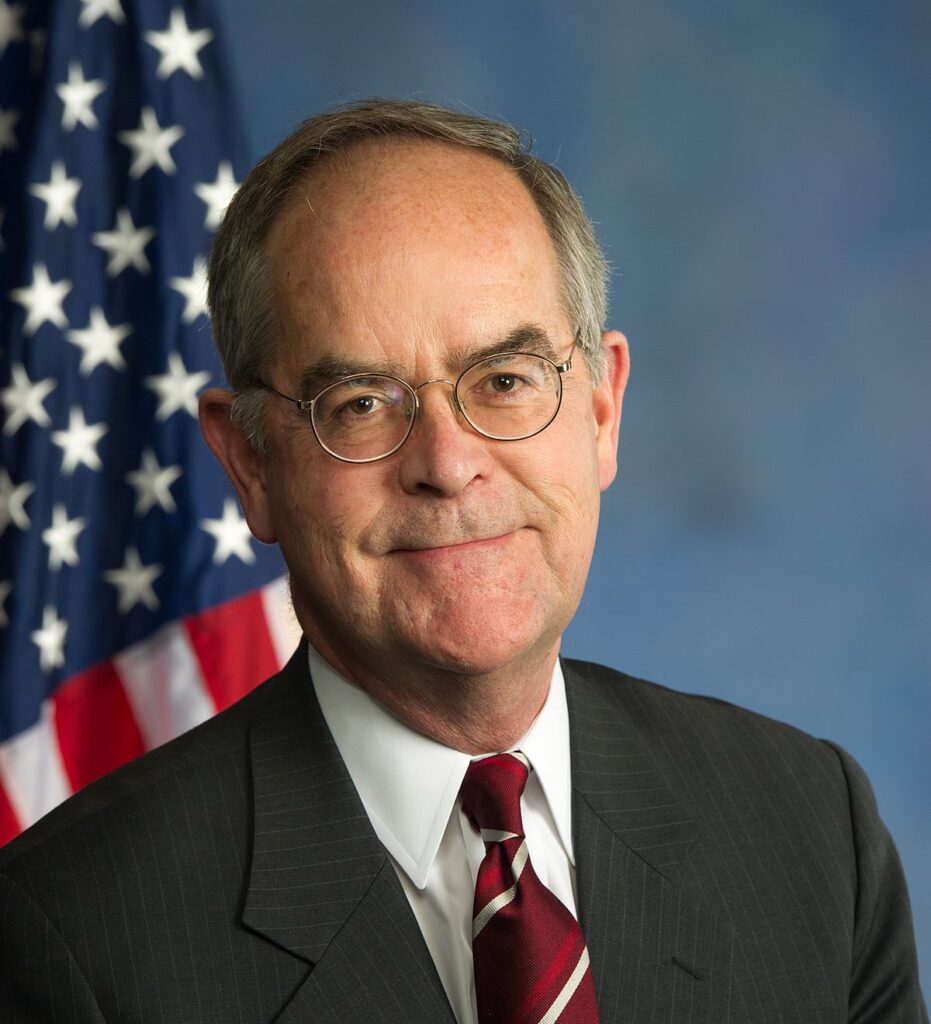
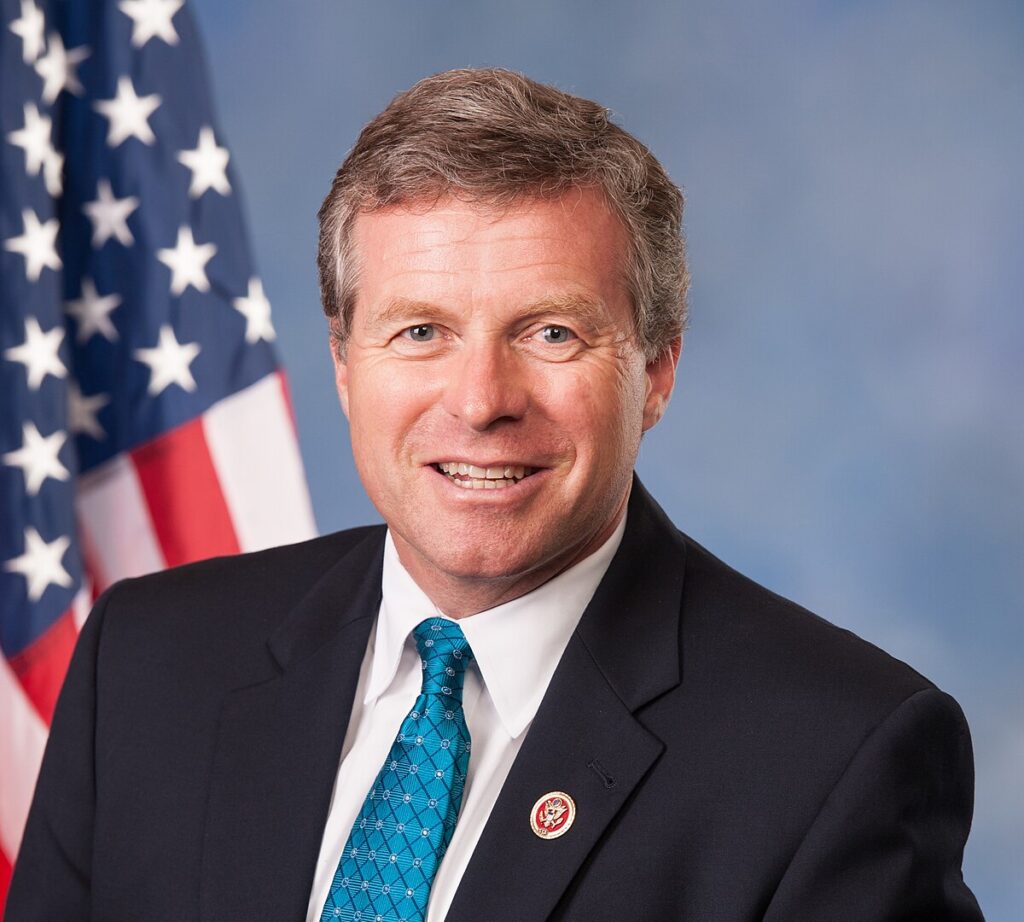
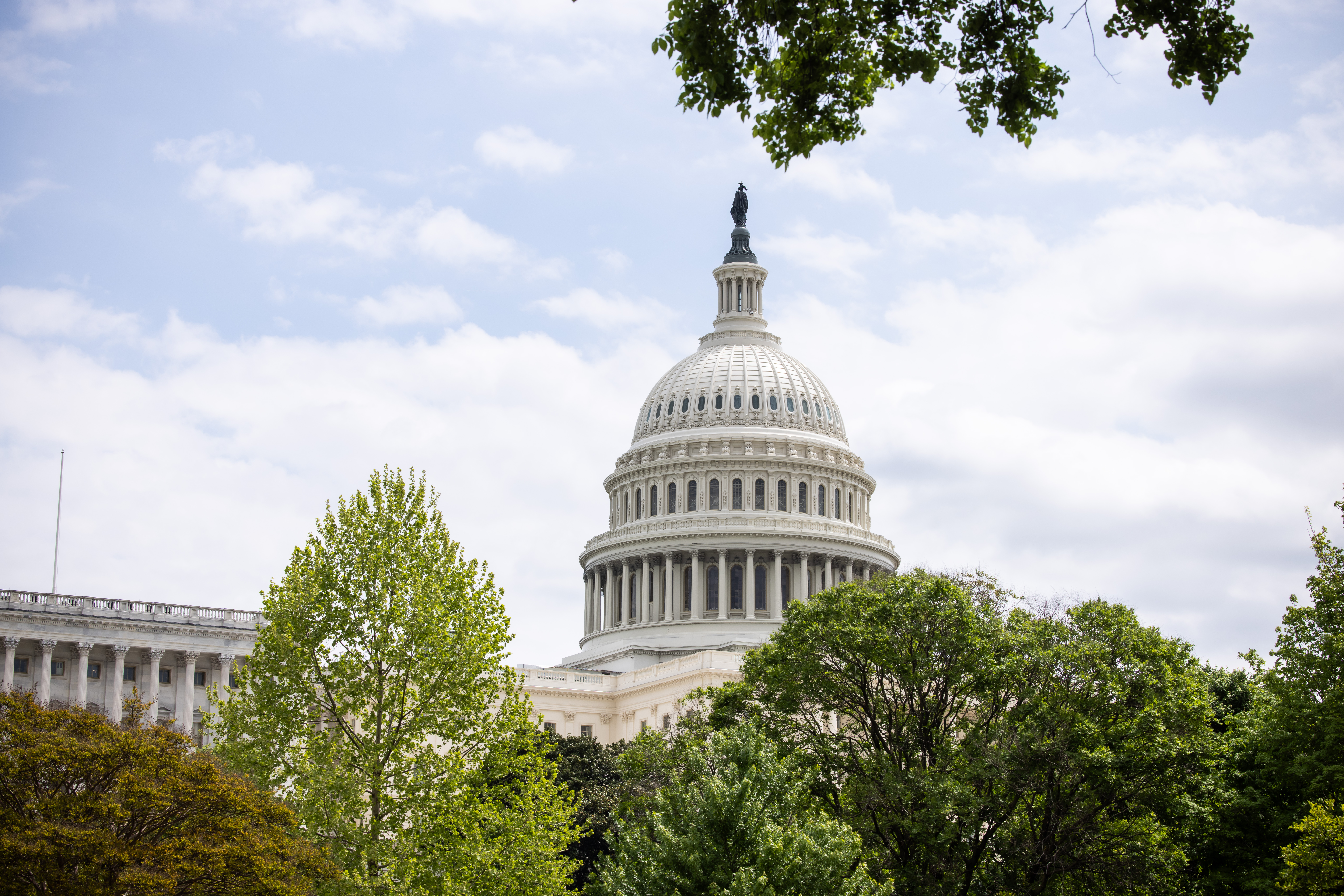
Letter from the Conveners
“The dysfunction in Congress has reached the point that it now poses a serious threat to our democracy, our economy and America’s status in the world. Legislating has largely given way to partisan theatrics, with virtually every issue or action viewed through the lens of winning the next election. Norms of fairness, courtesy and cooperation are badly frayed while, session after session, the most pressing problems facing the nation go unaddressed and unresolved.“
“In drafting the agenda, we tried to focus on the things that would have the greatest impact – focusing time and attention on legislating, reducing partisanship, fostering collegiality and constructive debate and providing opportunity for bipartisan compromise. We wanted it to be bold and comprehensive enough to transform day-to-day realities and allow Members to imagine an existence that is more satisfying and no less politically secure.“
“If “fixing Congress” were easy or painless—or if party leaders had wanted to do it—it would have already happened. Unfortunately, the habits of partisan gridlock have become so ingrained that it will require a sustained effort by a group of courageous reformers to convince their colleagues that there is a better way to go about their business—better for the country, better for their constituents and, yes, better for themselves.”
An Agenda for Fixing Congress
This agenda was drafted by 14 former Members of the House and Senate listed below. Nearly all the ideas in the agenda have been previously included in other reform proposals and have been well vetted. The group also drew on the advice of several academic experts. Not all of those signing on the agenda agree with every proposal, while the details of many will need to be flushed out. But all agree that, as a package, it provides a solid starting point for an urgently needed discussion among Members and party leaders on changing the way Congress operates.
House
- David Cicilline (D-RI)
- Barbara Comstock (R-VA)
- Jim Cooper (D-TN)
- Tom Davis (R-VA)
- Charlie Dent (R-PA)
- Donna Edwards (D-MD)
- Mickey Edwards (R-OK)
- John Katko (R-NY)
- Andy Levin (D-MI)
- Tom Reed (R-NY)
- Ileana Ros-Lehtinen (R-FL)
- Fred Upton (R-MI)
- John Yarmuth (D-KY)
Senate
- Thomas Daschle (D-SD)
- Byron Dorgran (D-ND)
- Mark Udall (D-CO)
- Reconfigure the calendar: three five-day weeks in Washington followed by one-week district work period, with extended recesses over summer and year-end holidays
- Provide adequate reimbursement for Members who choose to move family to Washington, funded from current congressional appropriation
- No recess after Oct. 1 unless government is funded for fiscal year
- Reduce size of committees by limiting members to one “major” and one “minor” committee
- In House, require membership ratios and budgets on committees reflect the partisan balance of chamber
- Chairs and ranking members selected by committee members (except Rules)
- Require sixty percent majority to take up bills not approved by committee
- In both chambers, create petition process to allow committee member to bring to the floor any matter approved by the committee with bipartisan support
- Require committees to hold private all-Member planning retreats at the beginning of each session
- Allow committees to hold Members-only executive sessions for deliberation
- Restructure hearing format to reduce partisanship and political posturing
- At markups, prioritize amendments with significant bipartisan support
- Streamline budget/appropriation/authorization process around a two-year budget cycle
- In both chambers, guarantee debate and votes for germane floor amendments with significant bipartisan support
- In both chambers, guarantee debate and vote for at least one germane minority party floor amendment or motion to recommit
- In Senate, limit number of amendments that can be controlled by any senator or either party
- In both chambers, create, simplify and strengthen petition process to allow a majority of members to bring any matter to the floor
- In Senate, limit debate on motions to proceed to one hour
- In Senate, return to talking filibusters and require 41 votes to continue debate rather than 60 votes to end it
- In House, require petition of 50 members of majority party to take up a motion to vacate chair
- Non-partisan seating in chambers and committees
- In Senate, limit regular party caucus lunches/meetings to one per week
- In both chambers, hold weekly “question time” for party leaders
- In Senate, hold private monthly Members-only discussion sessions
- In House, hold annual private retreat for Members and families
- In both chambers, revitalize Members-only dining rooms
- End partisan domestic/overseas trips
- Expand non-partisan orientation for new Members
News & Comment
Check out the latest blogs and news coverage around Fixing Congress.

Roll Call Opinion: Congressional power, ending with a whimper, not a bang?
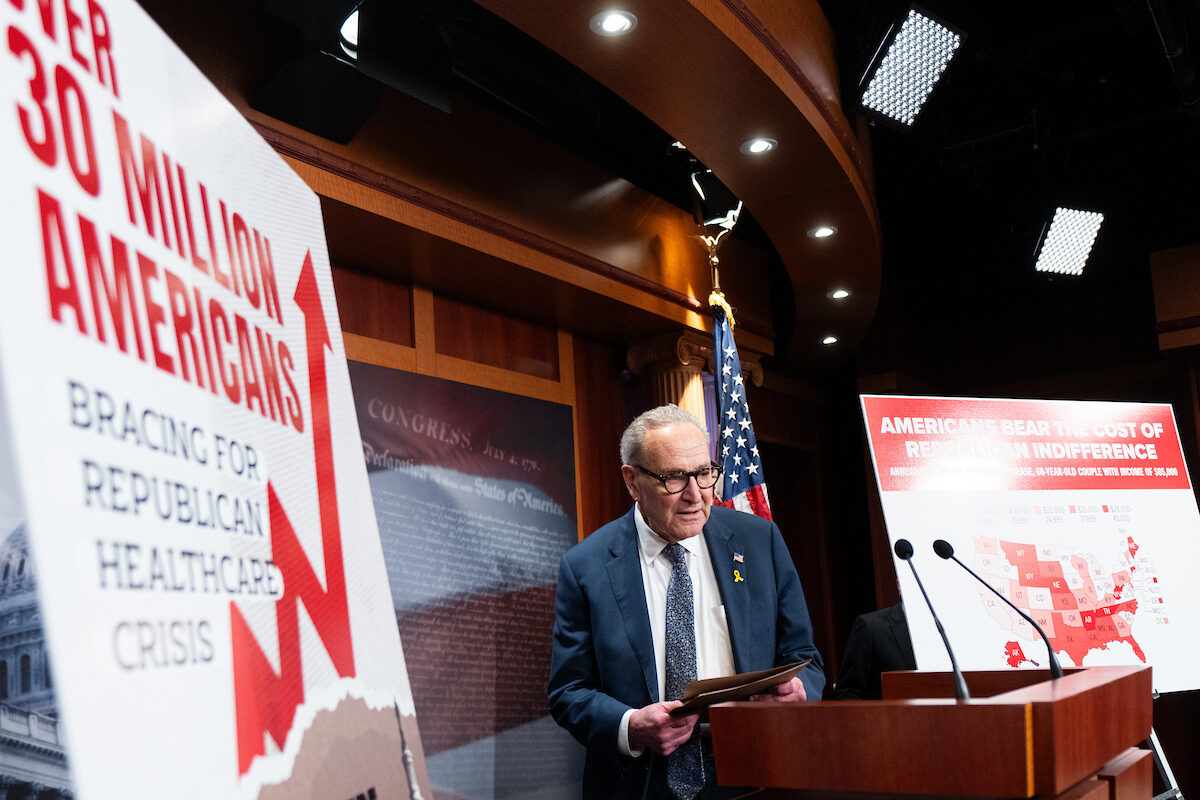
Roll Call Opinion: Why a deal isn’t coming together on health care
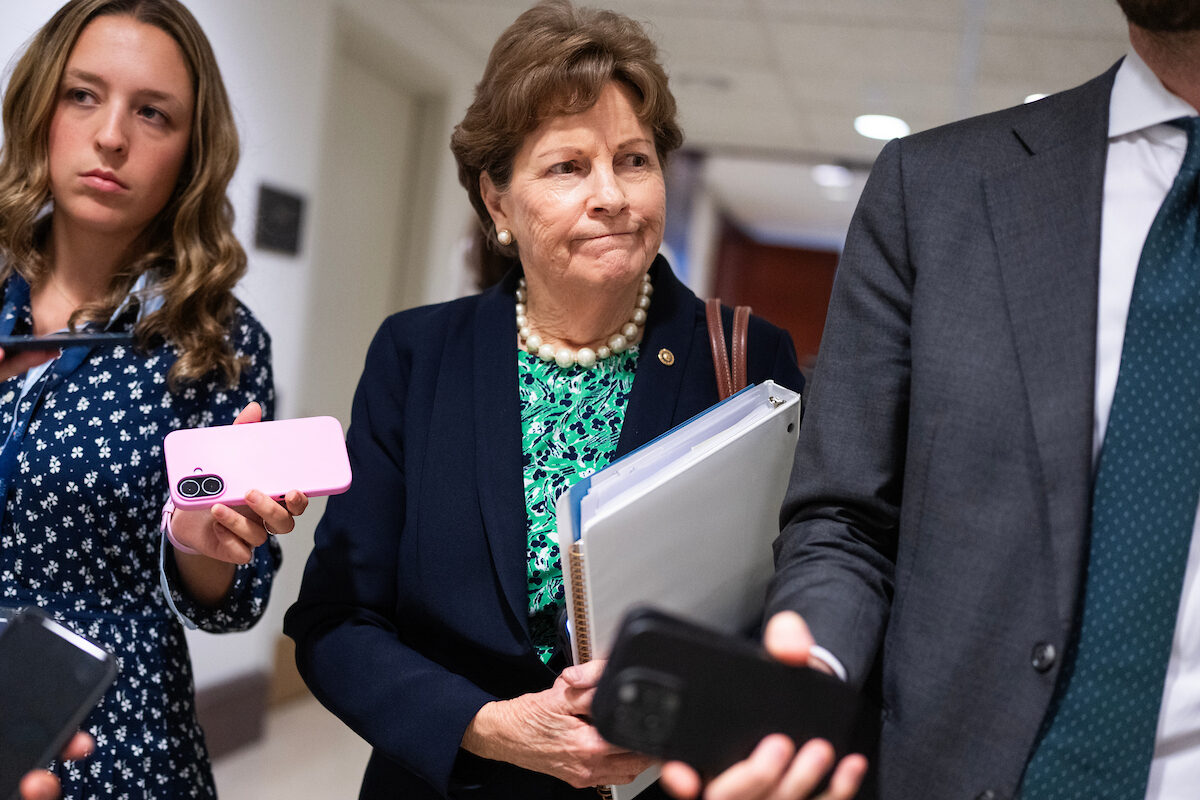
Roll Call Opinion: In shutdown deal, bipartisan legislating trumped party unity
The Fixing Congress Community
Penn Washington’s Fixing Congress initiative is a newcomer when it comes to shining a light on a dysfunctional Congress and recommending ways to fix it. A number of other organizations have been at it for years and many of the recommendations in our “agenda” have origins in their work. Moreover, we all owe a debt to the academics and journalists and former Members and staff who have written knowledgeably and creatively about the issue over the years.
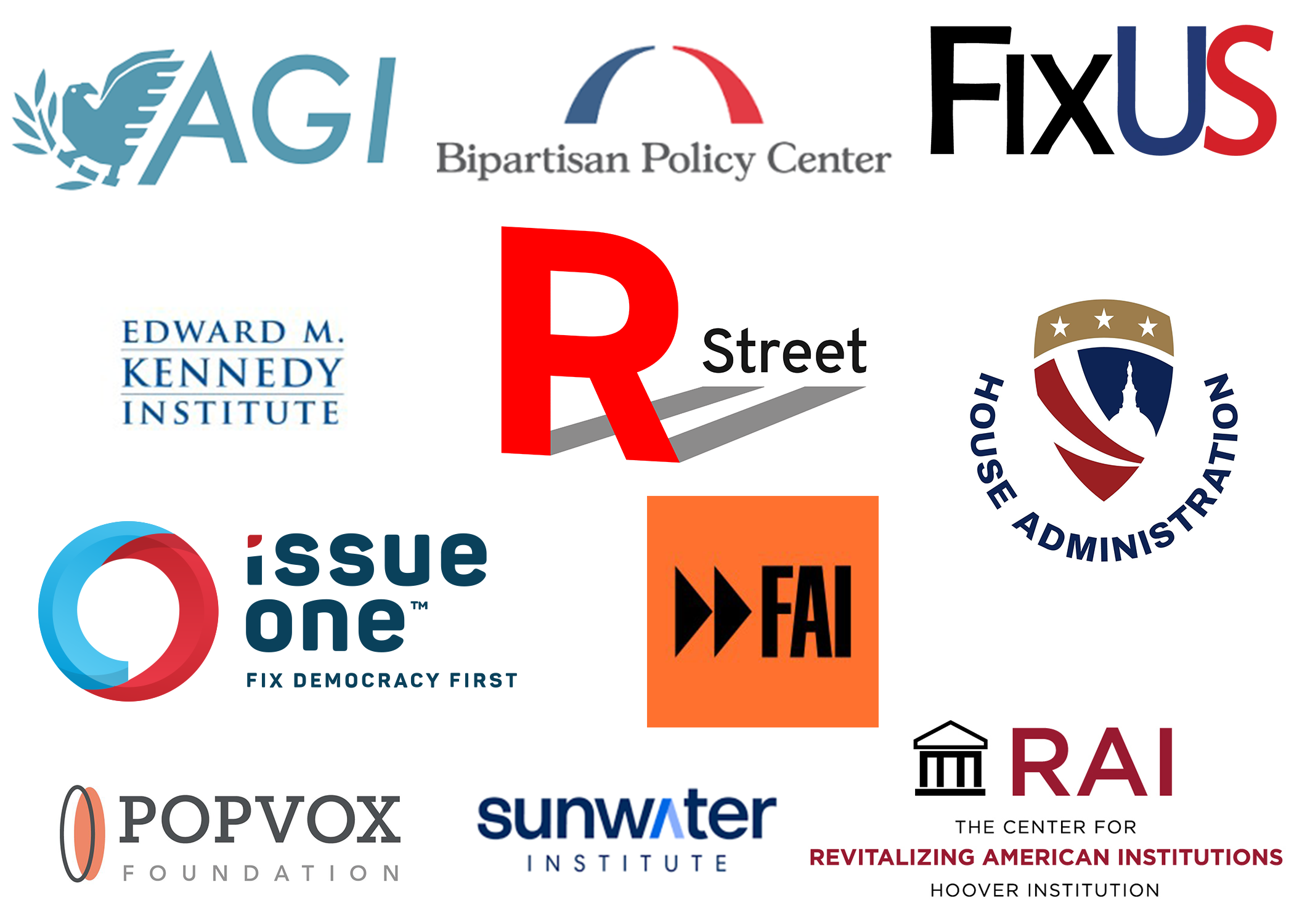
Fixing Congress Reading List
As part of our effort to deepen understanding and foster informed discussions, the Fixing Congress initiative at Penn Washington offers a carefully curated reading list that highlights key texts, articles, and reports around the ongoing conversation about reforming Congress.
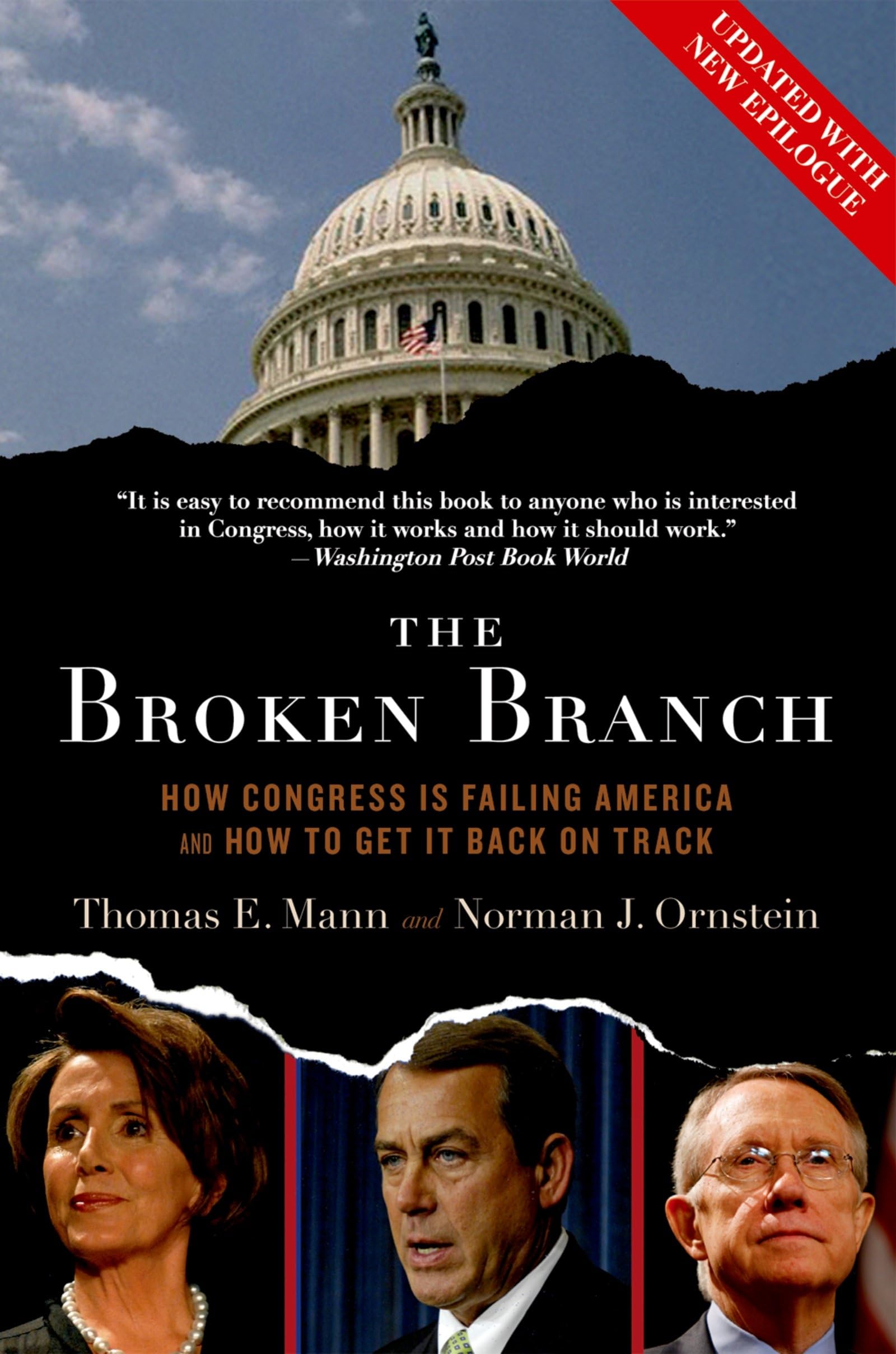
The Broken Branch: How Congress Is Failing America and How to Get It Back on Track
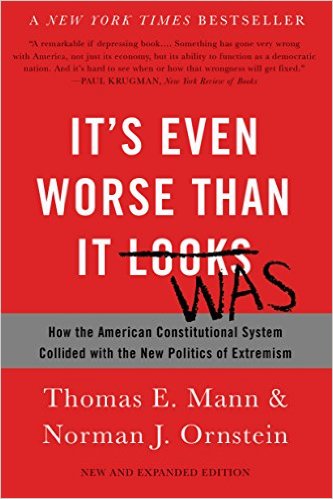
It’s Even Worse Than It Was: How the American Constitutional System Collided with the New Politics of Extremism
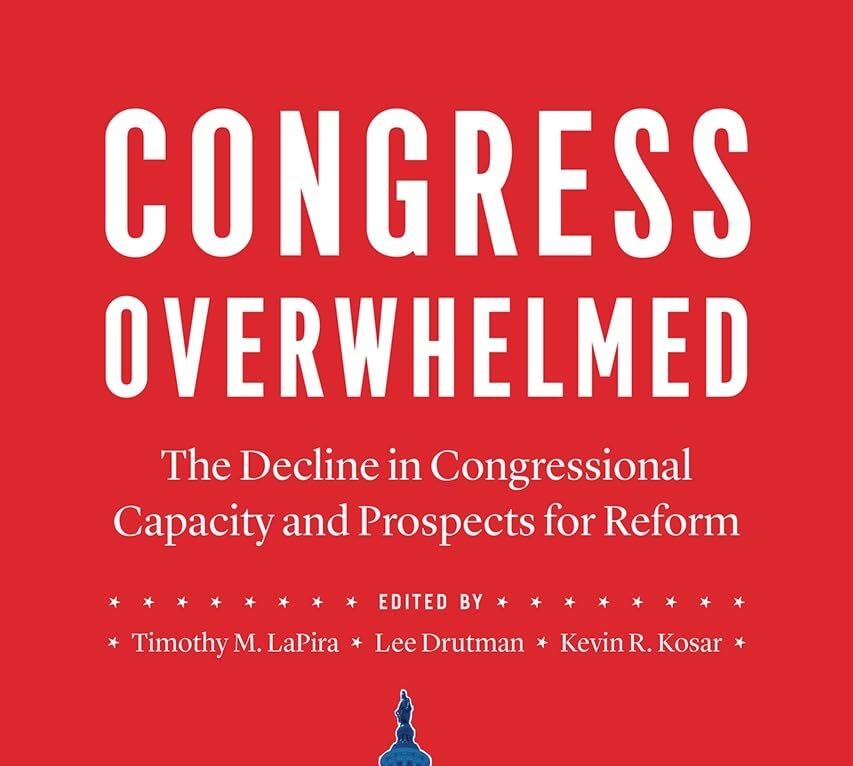
Congress Overwhelmed: The Decline of Congressional Capacity and Prospects for Reform
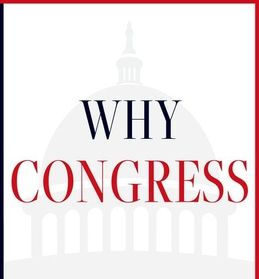
Why Congress
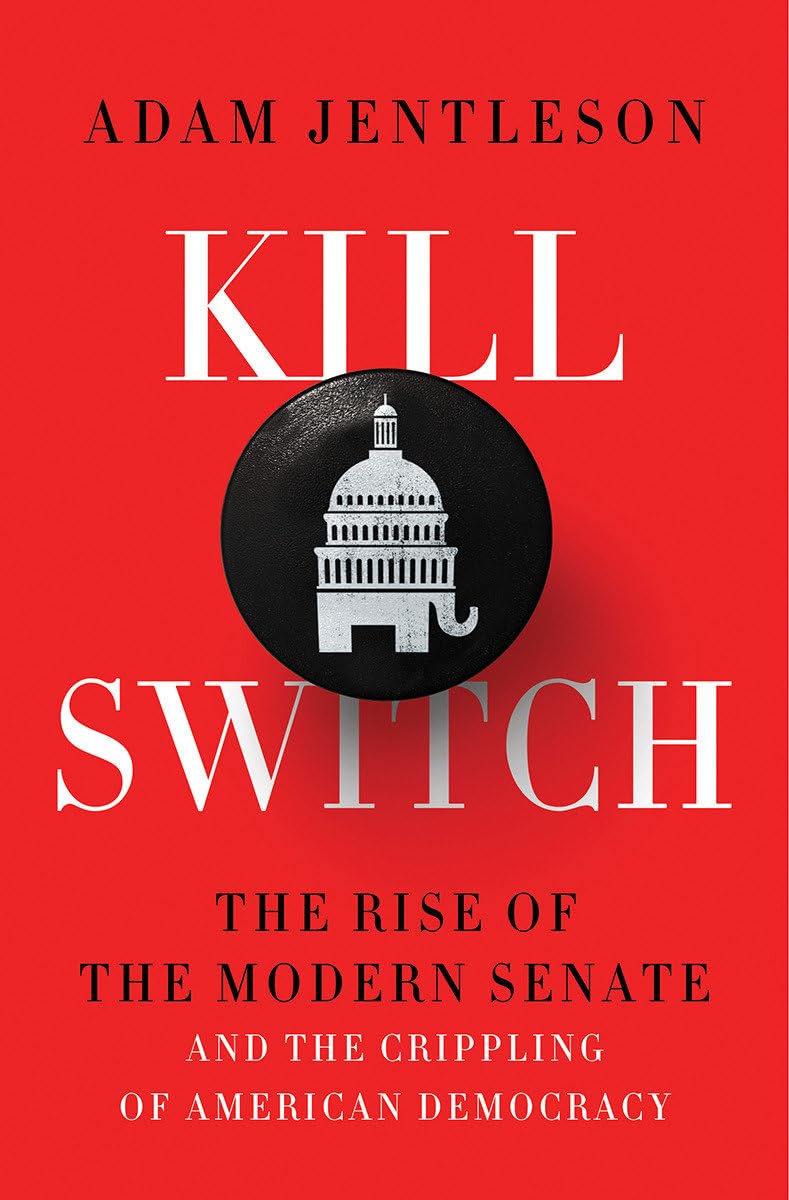
Kill Switch: The Rise of the Modern Senate and the Crippling of American Democracy
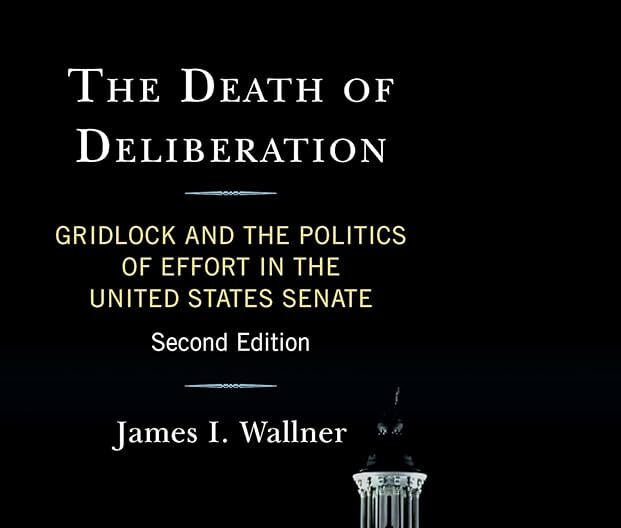
Death of Deliberation: Gridlock and the Politics of Effort in the United States Senate

Broken: Can the Senate Save Itself and the Country
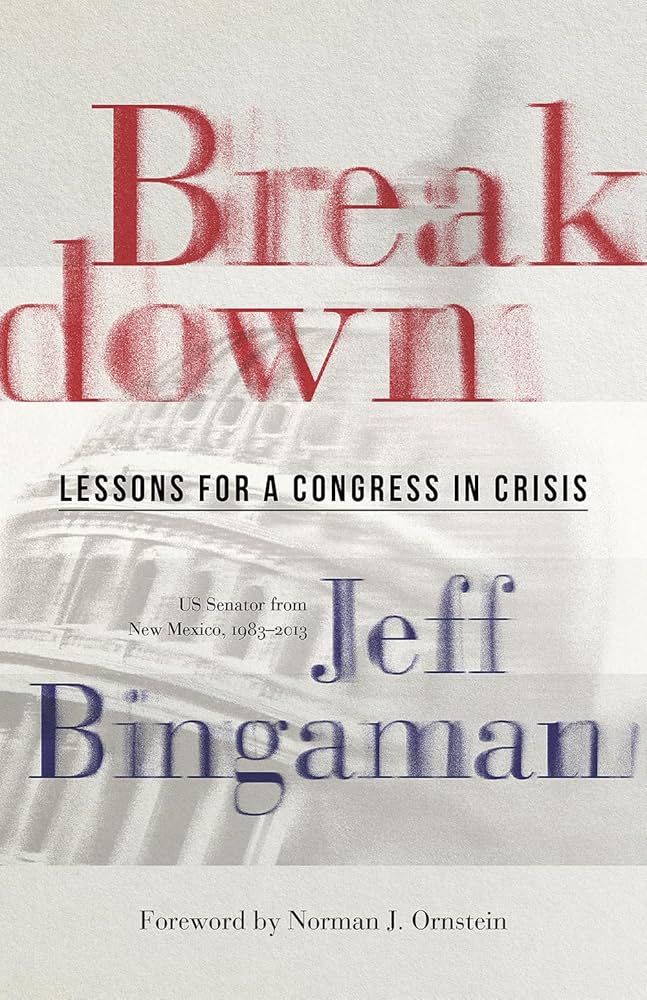
Breakdown: Lessons for a Congress in Crisis
Articles and Reports
- “Governing in a Polarized America: A Bipartisan Blueprint to Strengthen Our Democracy,” Bipartisan Policy Center Commission on Political Reform, 2015
- Healthy Congress Index, Bipartisan Policy Center
- “Revitalizing the House: Bipartisan Recommendations on Rules and Process,” Hoover Institution and Sunwater Institute, 2024
- “Restoring Congress as the First Branch, R Street Institute,” Kevin R, Kosar et al, 2016
- “Renovating the People’s House, Rules Reform for the 119th Congress,” Daniel Schuman and Zach Graves, Foundation for American Innovation, 2024
- “Curbing Filibuster Abuse,” Brennan Center for Justice at New York University School of Law, Mimi Marziani, Jonathan Back and Diana Kasdan
- “How to Fix the House of Representatives,” Keith Rothfus, National Affairs, Summer, 2021
- “How to Salvage Congress,” Mike Gallagher, The Atlantic, November, 2018
- “What’s Wrong With Congress (And How to Fix It)”, The Atlantic, June, 2024
- “Congress at a Crossroads: Retiring Members of Congress Tell Us What’s Right, What’s Wrong – And How to Fix It,” Mark Sobol and Leonard Steinhorn, Association of Former Members of Congress,
- “Departing House Members Ask: ‘Why Am I Here?” Robert Draper, New York Times, May 30, 2024, Robert Draper
- Final Report, Select Committee on the Modernization of Congress, December, 2022
- “Congress is broken, but don’t blame polarization,” Philip Wallach and James Wallner, R Street, June 15, 2018
- “Why We Left Congress,, How the Legislative Branch is Broken and What We Can Do About It,” R Street and Issue One, December, 2018
- “Congressional Reform Task Force Report,” American Political Science Association, October, 2019
- “Anticipating Trouble: Congressional Primaries and Incumbent Behavior,” Elaine C. Kamarck and James Wallner, R Street and Governance Studies at Brookings, October, 2018
- “How Congress Stopped Working,” Derek Willis and Paul Kane, Washington Post and Pro Public, November, 2018
For More Information, contact Steven Pearlstein at spearls2@upenn.edu
Join Our Newsletter
Subscribe to our newsletter for the latest updates from Penn Washington.